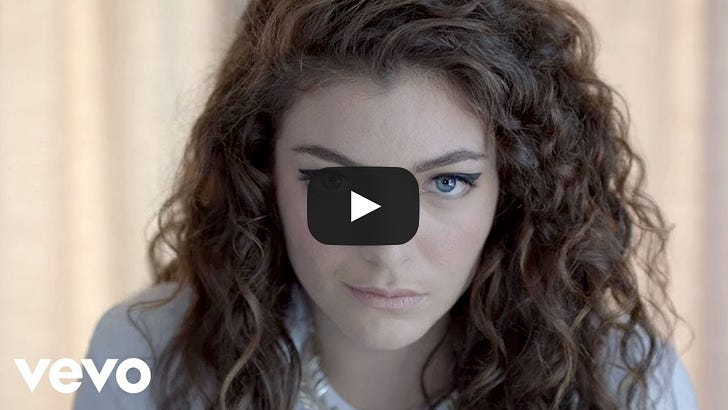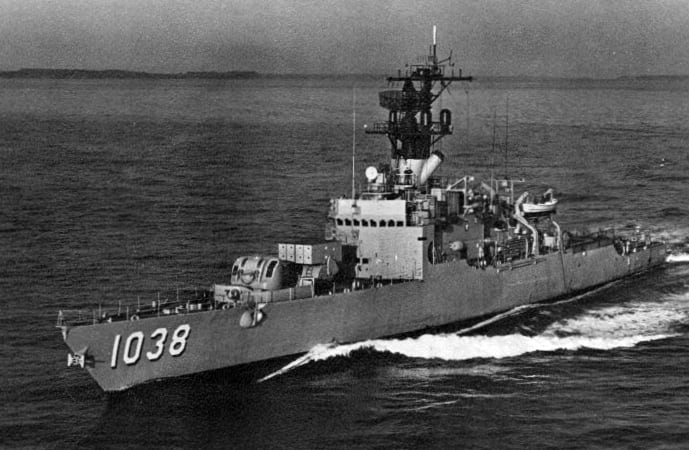|
 |
Politics and Culture in Plain Talk.
Subscribe for free to get straight-shooting commentary, zero buzzwords, and just enough humor from someone who’s writing what you’re thinking and don’t dare say.
Untoward Christian Soldiers
Want a Great Nation? Then Be a Good Nation. Convinced You Are in a War Between Good and Evil? You Are Likely Wrong About Which Side You Are On.
I wish “The Perils of Unchecked Presidential Power,” published July 5th, 2024, had been less prescient. I began that newsletter with a summary of one of the most shameful events in U.S. military history:
On 16 March 1968, two platoons of U.S. soldiers in line formation approached a Vietnamese village. They expected fierce resistance but found only women, children, and old men out cooking their breakfast over open fires. What happened next was so horrific that the only U.S. casualty at the end of it was a soldier who shot himself in the foot so he would not have to participate. The incident is known in the United States as the My Lai massacre because that is how the location was labeled on U.S. maps. The details are unsettling and better left to those who wish to research the event independently. The broad strokes include mass murder at close range, a village razed, women gang-raped and killed, and children, including infants, shot dead.
The only person convicted of any crime was an army lieutenant found guilty of murdering 22 people. The court-martial sentenced him to life in prison, but President Richard Nixon commuted his sentence to three years of house arrest. In just the hamlet where that lieutenant led the attack, at least 347 civilians died.
I wrote “The Perils of Unchecked Presidential Power” in response to the Supreme Court’s decision in Trump v. United States, which granted the president of the United States broad immunity for actions taken in office. In that decision, Chief Justice John Roberts wrote, “At least with respect to the president’s exercise of his core constitutional powers, this immunity must be absolute.”
Being Commander-in-chief of our military is, no doubt, a core constitutional power of the president of the United States. So I asked some rhetorical questions: What if President Johnson had ordered the My Lai massacre? What would happen if a future president ordered similar crimes? Could that president be held responsible?
A president of good character would never give such an order, of course, but we are faced with the possible return of the most capricious, amoral president in the history of the United States. What’s to stop Donald Trump from ordering another My Lai? After all, he’d never be prosecuted. A Republican-led House of Representatives would never impeach him, and Republicans in the Senate would never vote to convict. . . .
We are all tired of this sycophancy. We need representatives in Congress who will stand up for the Constitution, not for the whims of a demagogue. We need leaders who will defend our democracy with the same tenacity with which they defend their party lines.
In the last few weeks, we have bombed at least three boats in international waters in the Caribbean, killing all on board.¹ Here is Trump announcing the latest strike on social media:
On my Orders, the Secretary of War ordered a lethal kinetic strike on a vessel affiliated with a Designated Terrorist Organization conducting narcotrafficking in the USSOUTHCOM area of responsibility. Intelligence confirmed the vessel was trafficking illicit narcotics, and was transiting along a known narcotrafficking passage enroute to poison Americans. The strike killed 3 male narcoterrorists aboard the vessel, which was in international waters. No U.S. Forces were harmed in this strike. STOP SELLING FENTANYL, NARCOTICS, AND ILLEGAL DRUGS IN AMERICA, AND COMMITTING VIOLENCE AND TERRORISM AGAINST AMERICANS!!!
After the first strike, Trump said the boat was manned by “Tren de Aragua Narcoterrorists” from Venezuela. After the second, he dropped the Tren de Aragua but said that the boat came from Venezuela. This time, it was just a “Designated Terrorist Organization.” The body count so far is at least seventeen. The labeling of gangs and drug cartels as terrorist organizations is already problematic, but using that label as an excuse to kill human beings when there are other options available is, in my view, immoral and weak.
We were once moral and strong. In the summer of 1987, I was on the USS McCloy (FF 1038) in the North Atlantic. The McCloy had a Coast Guard lieutenant on board because they had recently conducted drug interdiction operations in the Caribbean, and the U.S. Navy needed persons on board with maritime law-enforcement jurisdiction. When the McCloy stopped a suspected drug-trafficking boat, a boarding party would secure the boat’s crew and conduct a search. If there were no drugs, the boarding party returned to the ship and nobody died. If there were drugs on the boat, the crew was arrested and nobody died. If a boat tried to run, a few .50 caliber rounds into the propulsion system would stop them. A corpsman on board the McCloy during my time on the ship had treated a drug trafficker injured in that exact situation. Nobody died.²
The Trump administration has decided that it is acceptable to kill people as long as you first label them as terrorists. But who gets to decide to whom that label is applied? It wasn’t the destruction of boats and lives in the Caribbean that brought that question to mind; it was speeches at the Glendale, Arizona memorial service for Charlie Kirk.
You may have heard that Trump, during his speech, said that he hates his opponent. What he said, in context, was this:
That’s where I disagreed with Charlie. I hate my opponent, [laughter] and I don’t want the best for them. [laughter, applause] I’m sorry. I am sorry, Erika. But now Erika can talk to me and the whole group, and maybe they can convince me that that’s not right, but I can’t stand my opponent.
Nothing unexpected there, really. Trump also said this:
At another college, Antifa terrorists shattered windows, threw rocks and tried to storm the building where Charlie was speaking. It was a really bad one. Often, dozens of police officers were needed to prevent left-wing violence, and the violence comes largely from the left.
This is not the first time Trump has referred to Antifa as terrorists. Here, he is also tying “the left” in general to the people he has just labeled as terrorists. A bit later, he said this:
The gun was pointed at him (Charlie Kirk), but the bullet was aimed at all of us. That bullet was aimed at every one of us.
Earlier, JD Vance had said:
He was taken from us by those who despise the virtues that made out civilization great to begin with.
And Stephen Miller, who claimed on a podcast with Vance that a “vast domestic terror movement” was responsible for Kirk’s death, said in his speech:
We will prevail over the forces of wickedness and evil. They cannot imagine what they have awakened. They cannot conceive of the army that they have arisen in all of us. . . .
We will defend goodness. We will defend light. We will defend virtue. You cannot terrify us, you cannot frighten us, you cannot threaten us, because we are on the side of goodness. We are on the side of God.³
So, the message is that there is a we/us on the side of God and then there are those who despise the virtues of we/us and whose bullets are aimed at we/us. The other side cannot conceive of this army of Christian soldiers, for some reason. Maybe it’s all that untoward laughter and cheering in the ranks about their leader’s hate for his opponents.
Podcast host Benny Johnson said this during his turn at the podium:
May we pray that our rulers here, rightfully instituted and given power by our God, wield the sword for the terror of evil men in our nation, in Charlie’s memory.
Rulers? We don’t have rulers here in the United States, Benny. The only ruler I would come anywhere near approving would be New Zealand pop singer Lorde, because she asked nicely and understands it would only be a fantasy.
Lorde. "Royals." Pure Heroine. Universal, Lava, and Republic, 2013. Let me be your ruler (Ruler) You can call me queen bee And baby, I’ll rule (I’ll rule, I’ll rule, I’ll rule) Let me live that fantasy
A country cannot be made great or “great again” if it is not first good, and people who believe that they are engaged in a war between good and evil tend to be unskilled at discerning where that line is drawn and which side of it they are on. The label—be it “evil,” “terrorist,” or “enemy of the state’“—that they slap on their opponents should not be taken as a license to kill.
The speeches I have quoted contained little virtue or goodness or humility, and they didn’t sound much like memorial or grieving. They sounded like something else. Let’s see if Turning Point USA co-founder Tyler Bowyer can help us put our finger on it:
Charlie’s having some serious heavenly FOMO right now. Look at this. You have no idea how much Charlie Kirk wants a bullhorn down here right now. He always said to me, “If we could just figure out how to bring the Holy Spirit to a Trump rally.” I think you’ve done it.
Oh, I see.

We = Our United States government of the people, by the people, and for the people. Whether it commits heroic acts or horrors, it claims to represent our collective interests, ambitions, and principles.
Also, you get better intel from a detainee than from a dead man.
There is some dark humor in Stephen Miller talking about being a defender of goodness, light, and virtue.
You’re currently a free subscriber to Trygve’s Substack. For the full experience, including access to the archives, upgrade your subscription.
